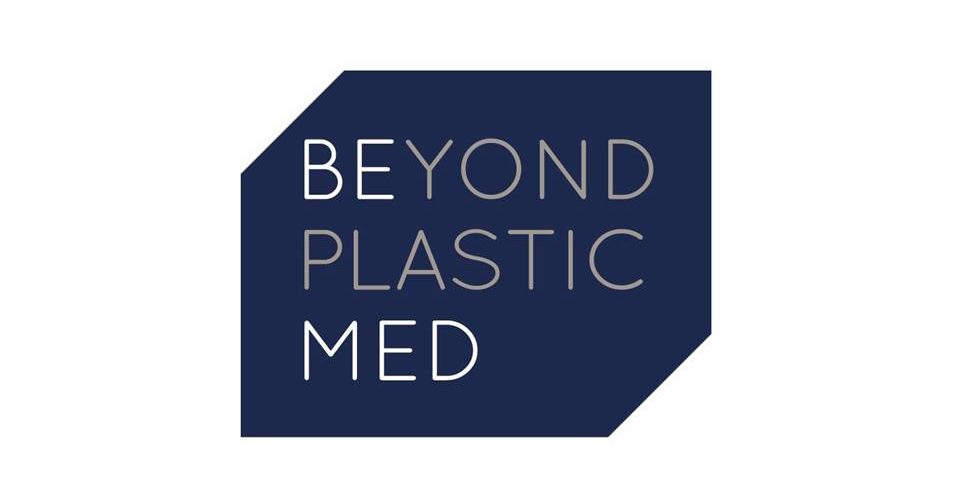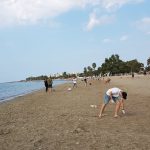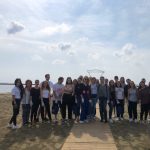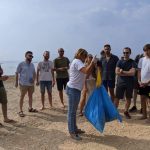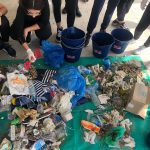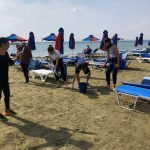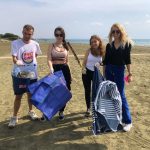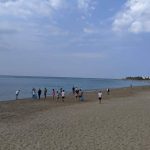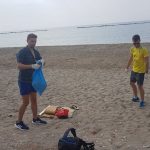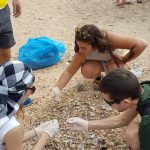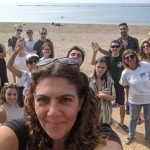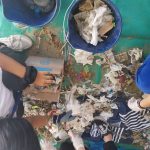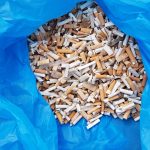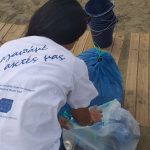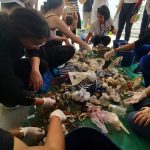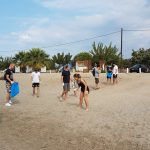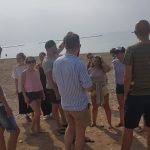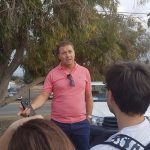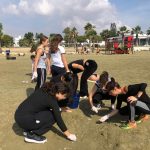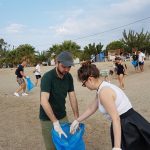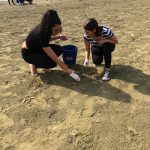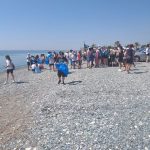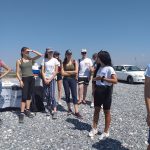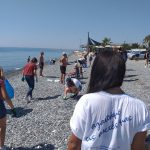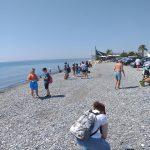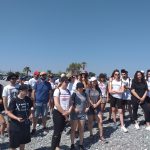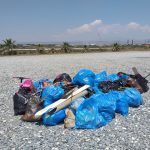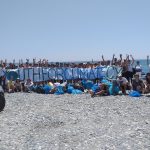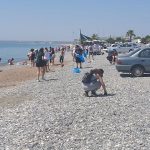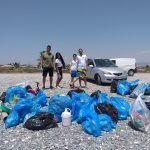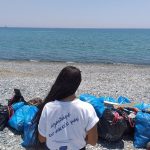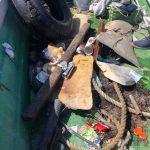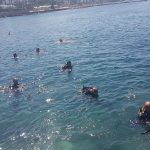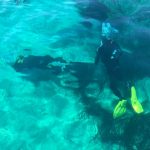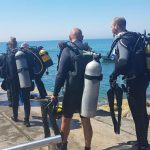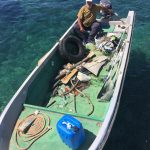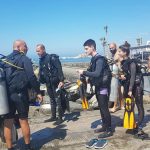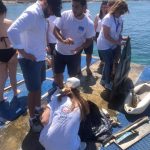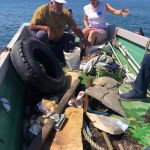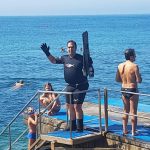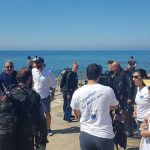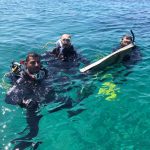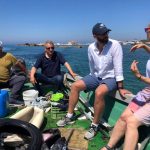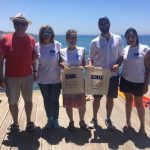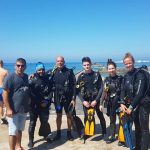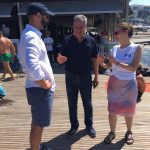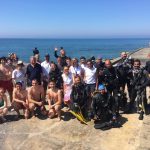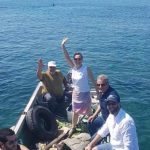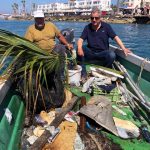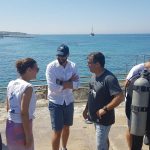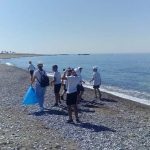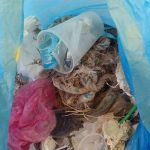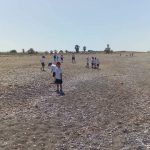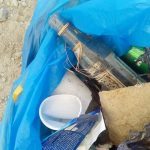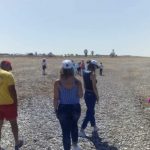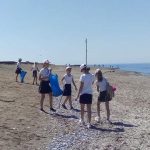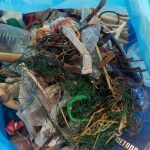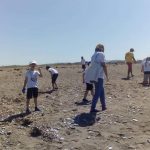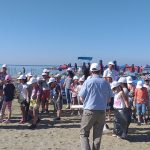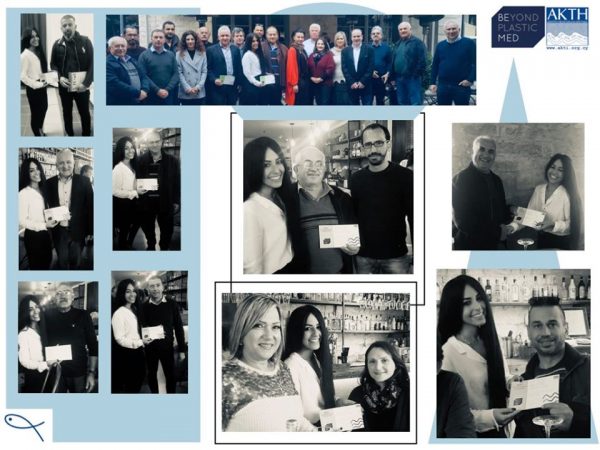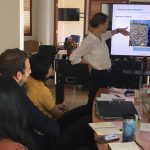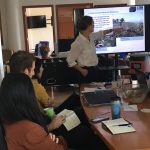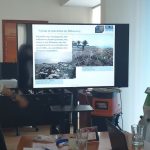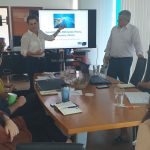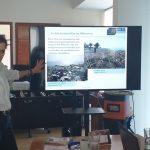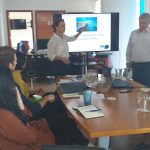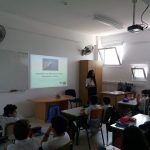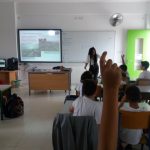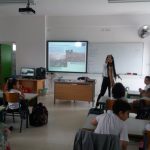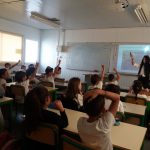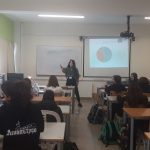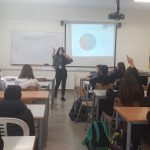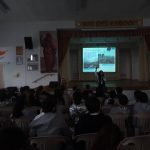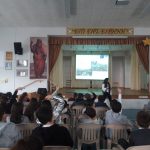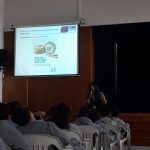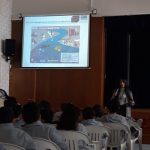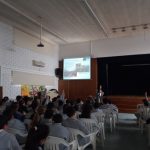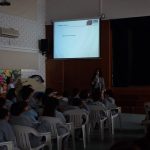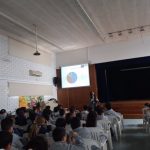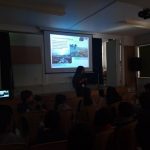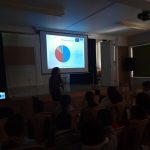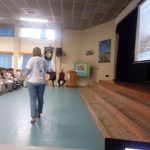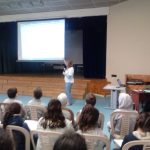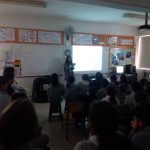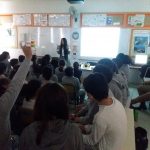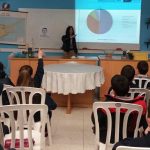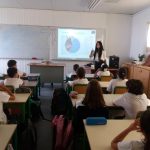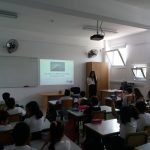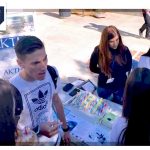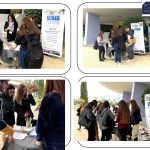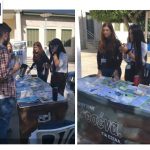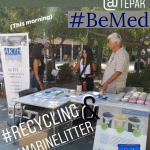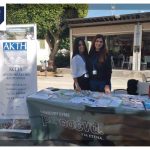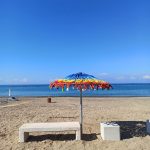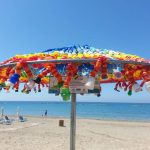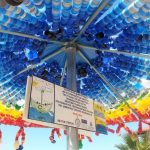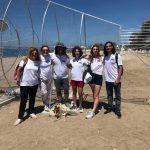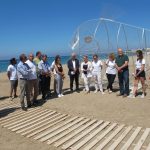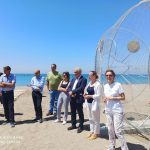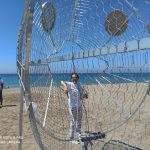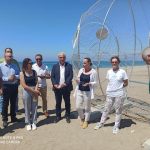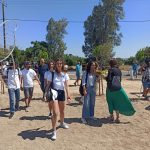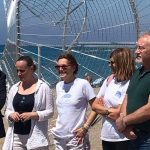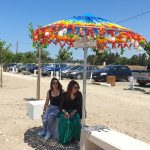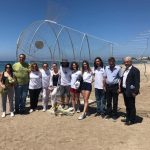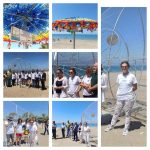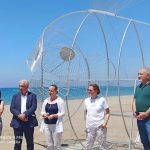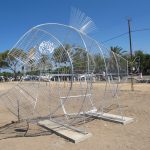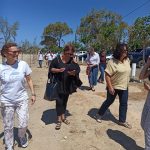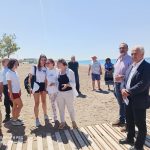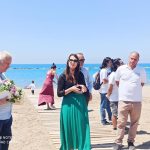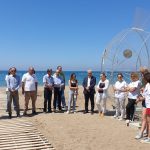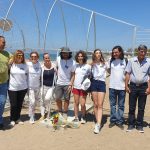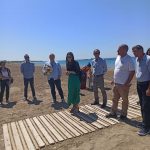Projects
BeMed: The Cyprus Responsible Coastal Businesses Network against Single-Use Plastics
Date: 2019 - 2020
Marine litter is an environmental, economic as well as human health problem with no simple solution. It poses a global, complex and multi-dimensional challenge with significant implications for the marine and coastal environment and human activities all over the world. Single-use plastic products constitute more than 70% of all marine litter items. The European Commission in May, 2018 proposed new EU-wide rules that target to reduce the ten most common single-use plastic products found on Europe’s coastal areas and seas.
This year-long project funded by the Beyond Plastic Med Foundation aims to raise awareness on the impact of single-use plastics on the environment and consequently on human health and provide practical solutions to the problem targeting key stakeholders of the Cypriot society, specifically coastal businesses.
📌The specific OBJECTIVES OF THE PROJECT are:
1️⃣. Awareness-raising of key stakeholders who contribute to, are affected by and are responsible for taking decisions regarding the usage of single-use plastics, particularly coastal businesses and local authorities, as well as the general public. Promote the need to reduce the use of single-use plastics, presenting their detrimental effects on the marine environment and offering a solution oriented campaign (as presented in following points (2) and (3).
2️⃣. Collection and dissemination of best practices for the reduction of single-use plastics through synergistic, novel and practical solutions to the problem. Collaboration of the key stakeholders will be encouraged and recorded.
3️⃣. Expansion of civic engagement through capacity building and skills development in conscious single-use plastic usage, in order to have a societal level change (i.e. coastal business owners, beachgoers, local authorities, students) in regards with the latest proposed EU Directive which aims to reduce marine litter.
📌 The six activities that were implemented over the duration of the project are:
1️⃣. Field trips for marine litter assessment and source identification were implemented, engaging coastal business owners, beachgoers and local communities. More specifically, AKTI implemented annual clean-ups on selected beaches with the collaboration of the Responsible Coastal Businesses, local authorities, schools, and volunteers. A total of 13 marine litter assessments were implemented: 12 beach clean-ups and 1 seabed clean-up, with the participation of almost 400 volunteers, including representatives of 10 local authorities.
AKTI is the national coordinator of the International Coastal Cleanup (ICC) of the Ocean Conservancy in Cyprus. Therefore, all the clean-ups were implemented using the International Coastal Cleanup Protocol. The data have been included in AKTI’s Regional Marine Litter Database and have also been submitted to the ICC. Over 18,000 litter items were collected, weighing more than 300 kilos.
📸🌊Some photos from the Beach and Seabed Cleanups, are available here:
2️⃣. A Guide that highlights the practices that can be applied by each stakeholder/target group in order to reduce the use of single-use plastics, has been developed, printed and distributed to all the Network Members as well as the coastal authorities we visited and informed about single use plastics. The Guide developed as part of this activity, aims to support businesses that are members of the Cypriot Responsible Coastal Business Network to implement practices that will minimize their consumption of single-use plastics, reduce the amount of litter that they produce, and thus contribute to the overall reduction of marine pollution. In so doing, the guide will help prepare coastal businesses for the Single-Use Plastics Directive of the European Union, which will come into force in 2021 and that will ban the use of the most common types of single-use plastics that end up in the marine environment. In summary, the guide seeks to fill a significant information and awareness gap by engaging key stakeholder groups and encouraging them to make a difference by incorporating more sustainable practices in their operations and thus contributing to the fight against plastic marine pollution.
200 copies of the Guide (100 copies in English and 100 copies in Greek) were produced and distributed to the Members of the Responsible Coastal Business Network, and other stakeholders
An electronic version of the Guide, is available here:
3️⃣. Strengthened and expanded the «Responsible Coastal Businesses Network» to 204 members, through the implementation of an Extensive Awareness-raising Campaign, which was implemented from May 2019 to September 2019 (in the tourist season) targeting all coastal businesses on the island. In these campaigns, AKTI’s staff liaised with business owners/managers/employees, informing them about marine litter (sources and impacts) as well as about the upcoming European legislation on single-use plastics and how it affects them, and assisting them in implementing practices that will minimize their plastic production and thus minimize the potential for marine plastic pollution from their operations and their customers’ activities. The aim of the Network is to engage businesses in the fight against marine litter, by (i) raising awareness about the problem,(ii) sharing some best practices and examples on how to actively minimize their contribution to the problem through the Guide which was developed during the implementation of the project and distributed to coastal businesses and (iii) getting them invested in the protection of their nearby coastal environment as a means of securing and expanding their business.
✅ The Responsible Coastal Businesses Network is visible on this Map.
The awareness raising campaign also included visits to 16 Coastal Authorities to inform them about the project and the serious problem of single-use plastics, their impact on the environment and consequently on human health.
The involvement of representatives from these local authorities in the awareness raising visits to coastal businesses, added particular clout to this activity.
4️⃣. School visits were implemented to inform and raise awareness in children and youth about the problem of single-use plastics and its negative impacts on the marine environment. Dr. Michael Loizidis and Dr. Xenia I. Loizidou prepared an interactive presentation on marine litter and provided a ‘train the trainers’ workshop to AKTI’s team so they could more effectively engage students of all ages during the school visits. Presentations were given at 10 schools reaching 1244 students.
During these interactive presentations, children learned about marine litter and specifically the impact of single-use plastics on the marine and coastal environment, through fun games and hands-on activities. The presentation finished with ways to reduce single-use plastic consumption and a call to action.
📸Some photos from the Training of the Trainers by Dr. Michael Loizides and Dr. Xenia Loizidou for the presentations in schools, are available here:
📸Some photos from the School Visits, are available here:
In the framework of the project, an additional action was implemented which was not included in the project’s specific goals. An awareness raising campaign on marine litter was implemented in 2 Cypriot Universities, twice at Cyprus University of Technology and once at University of Cyprus, to inform and raise awareness in 400 students about the problem of single-use plastics and its negative impacts on the marine environment.
📸Some photos from the Awareness Raising Campaign in Universities, are available here:
5️⃣. A highly publicised Final event was implemented at the end of the project. The ceremony took place on June 5, 2020 on the occasion of the World Environment Day, at the Municipal Beach of Geroskipou in Paphos. During the event, the overall results of the initiative were presented, and two artistic installations on marine litter were inaugurated. For the installations, AKTI Project and Research Centre collaborated with the Municipality of Geroskipou and the Second Primary School of Geroskipou, under the supervision of Ms Elena Daniel, a Cypriot artist.
The philosophy behind the installation, is the participation of visitors to the beach in the drastic reduction of the inappropriate disposal of plastic waste. The installations are a fun and interactive way to engage children and adults alike in the fight against plastic marine pollution, and act as a reminder that we must find ways to adopt a more environmentally friendly lifestyle. The event took place in the presence of the Environment Commissioner of Cyprus Mrs. Klelia Vassiliou and was attended by over 60 people (observing social distancing practices), including the Geroskipou Mayor Mr. Michael Pavlides and council members, the artist of the installation Ms. Elena Daniel, the Chairperson of Fishermen Federation in Paphos Mr. Leonidas Leonidou, Koloni Green Point manager Mr. Michael Michael, media (TV, radios and newspapers/e-media), Members of the Paphos Winter Swimmers Association, Members of Paphos Fishermen Association, representatives of the First and Second Primary School of Geroskipou, the Gymnasium of Agia Paraskevi and Giannaki Talioti High School in Geroskipou, Members of the Cultural Movement of Geroskipou and Local Community Members. The Ceremony was hugely successful with high Media coverage and publicity, and all stakeholders gave AKTI very positive feedback!
You can find below news clips, about the final event:
📸Some photos from the Final Event, are available here:
6️⃣. Extensive communication and dissemination activities took place over the duration of the project, and especially at times when important activities were implemented, e.g. the project launch, the participation of a representative of ΑΚΤΙ in the Ocean Week in Monaco, the cleanup events, the plastic free July campaign through marine litter facts and tips about single use plastics, the awareness raising campaign against single-use plastics in Universities, the interactive presentations in schools about marine litter and the final event.
Communication and dissemination activities were inclusive of all means and media (print, online, social etc) and included 30 publications about the project by third parties (national circulation newspaper articles, online news portals etc.), 1 TV and 4 Radio appearance, 37 Facebook posts by AKTI with a total reach of 63,529 and 1238 likes, 16 Instagram posts by AKTI with a total reach of 6,168 and 665 likes, 9 YouTube videos uploaded on AKTI’s channel.



